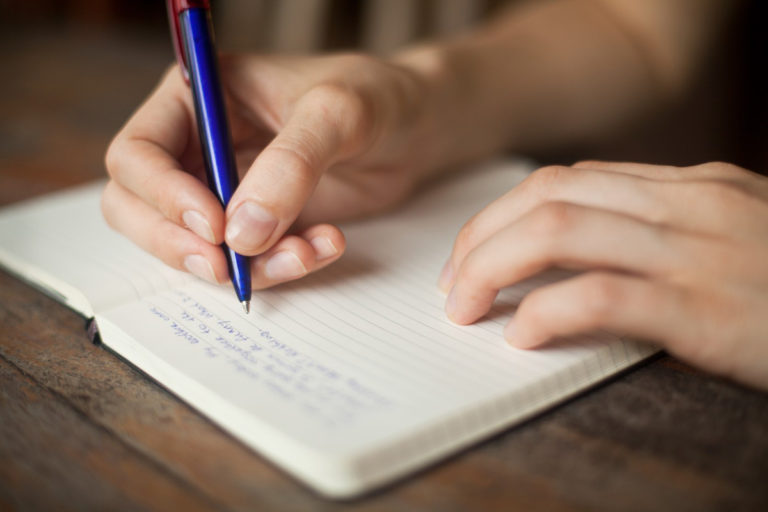
Everyone will experience and express grief in different ways, it’s the same with journaling, there are no rules, no right way to do it, just find what works for you.
Keeping a journal might help things feel less muddled as you get to know more about yourself and your personal grief journey.
You can log your personal goals, expectations, and experiences.
There may be things you don’t feel ready to talk to other people about yet, that’s ok. Having a journal means you don’t have to keep them inside, you have a space to express them in private.
When we’re grieving it’s not unusual for certain images or memories to seem stuck on a loop, those same images just keep repeating. Writing or drawing these recurring images can help you take control over them.
Record memories, use the journal to store any memories about the person who died, you might want to include any feeling that go alongside each memory.
Freestyle it – Don’t worry about spelling and grammar, just write whatever comes to your mind. It doesn’t have to make sense to others, all that matters is that it makes sense to you.
Try to add something each day – Give yourself time each day to write, draw, or doodle your thoughts and feelings from that day.
Create your own journaling space – Keep your journal and pen in safe space, choose somewhere that feels private and safe for when you add to your journal.
Use your phone – Log your thoughts, records voice notes, take photos anything you might want to include in your journal.
Give yourself permission – Don’t be afraid to include emotions, just go for it — get them into your journal.
It can be difficult to know where to start, here’s a few sentences that might help:
For further support, you can contact us from 9am – 5.30pm, Monday to Friday, on 0808 802 0111. We are here to help at the right time and way that is best for you.